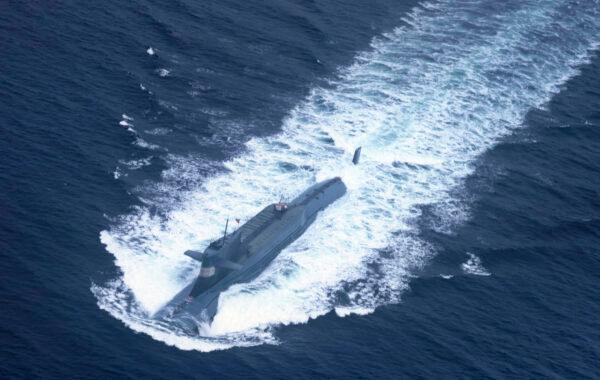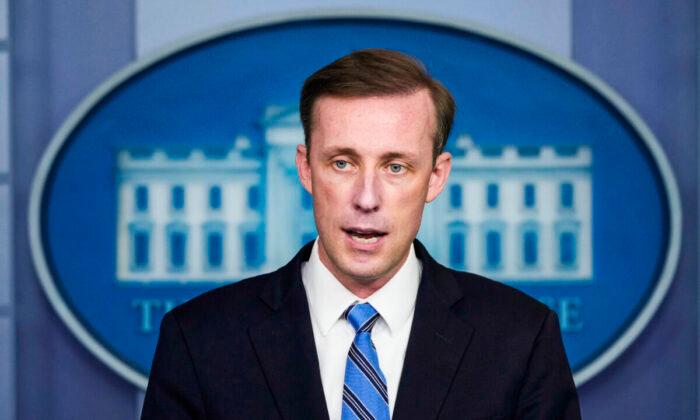China’s expansion of its nuclear capabilities and a “series of quite exotic forms of weaponry” highlight the crucial requirement for “intensive dialogue” to mitigate nuclear risks, a top White House official said on July 21.
“One thing I pointed out to my Chinese counterparts over the past two years is at various points in the Ukraine crisis when we’ve seen nuclear saber-rattling from the Russian side, is we have known how to deal with that because we have decades of muscle memory with the Russians in working on nuclear risk reduction strategic arms control [and] basic signaling,” he said.
“We do not have that with China, and that is inherently destabilizing and is something that we need to generate through intensive dialogue between the United States and China,” Mr. Sullivan said.
He said that the United States remains “fundamentally available” to engage in such a conversation and called on Beijing to do the same.
“We hope at some point the Chinese side will choose to join us in that because, again, this comes down to the basic responsibilities of nuclear powers, and it is an ability that we see Beijing not stepping up to right now,” he said.
Pentagon reports estimate that China’s communist regime will obtain 1,000 nuclear weapons by 2030, and 1,500 by 2035. Likewise, the regime now fields more launchers for land-based intercontinental ballistic missiles than does the United States.
Possible Stability in US–China Relations
Over the past month, Secretary of State Antony Blinken, Treasury Secretary Janet Yellen, and climate envoy John Kerry took trips to Beijing and engaged in meetings with top CCP officials to try to stabilize the strained relations between the United States and China.Mr. Sullivan said he believes there’s a “genuine possibility” to establish a stable relationship between the United States and China, despite the inherent competition between the two major powers.
“I actually think being clear, straightforward, and setting the emotions, the rhetoric, and some of these larger philosophical framings aside and just getting down to the core practicalities, there is, I think, a genuine possibility for a stable relationship,” he said.
“Even though that relationship is inherently competitive and will involve us doing things that Beijing doesn’t like and will involve Beijing doing things that we don’t like.
CCP Fears Guardrails May Benefit US
Mr. Sullivan said the CCP rejected the establishment of “guardrails” in its relations with the United States, contending that doing so is analogous to fastening seatbelts in a car, which would encourage the driver to speed up and lead to a crash.Guardrails are intended to manage tensions and promote stability in the relationship between the two major powers. However, Mr. Sullivan said that the CCP is concerned that having guardrails might allow the United States to take on more risks.
“And what we have tried to explain is actually the seat belt is a great analogy because wearing seat belts has dramatically lowered the costs and consequences of car accidents and is an inherently good thing in international relations, as it is on the highway down the street,” he said.
“The United States stands prepared to engage in every level of military-to-military communication to avoid mistake, miscalculation, escalation, and, frankly, the PRC does not,” Mr. Sullivan said, referring to China’s official name, the People’s Republic of China.
Mr. Sullivan said the sanctions imposed on Chinese defense chief Li Shangfu shouldn’t be hurdles to military talks between the United States and China.

Mr. Stoltenberg said that NATO would need to push back against such threats while engaging with Beijing to bring it to the negotiating table. He added that the Chinese regime wasn’t being transparent about the extent of its nuclear expansion.
“As a global power, China has global responsibilities. And Beijing, too, would benefit from the increased transparency, predictability, and security of arms control agreements,” he said on April 18.
“In the longer term, we need to rethink and adapt our approach to a more dangerous and competitive world. This means engaging with China.”





